吴晓林教授团队在国际重要期刊International Public Management Journal发表文章
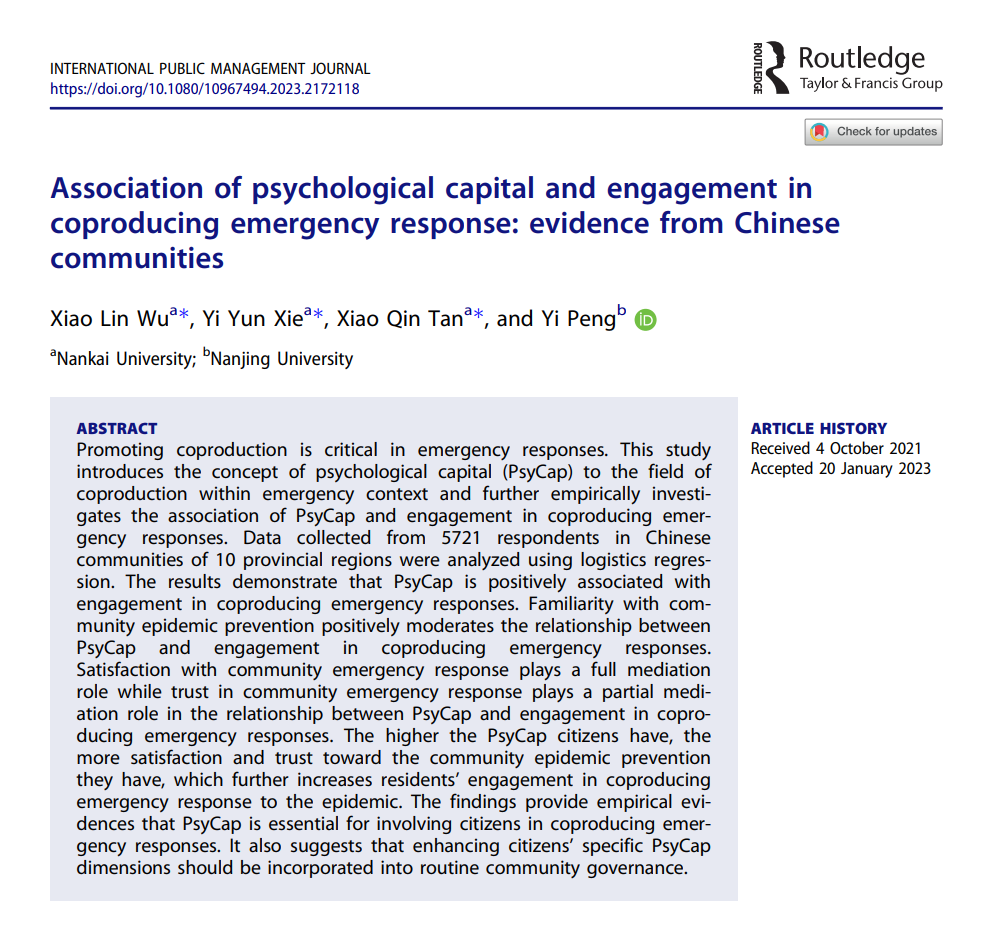
2023年3月21日,公共管理国际重要期刊SSCI期刊International Public Management Journal(SSCI)网络首发了437必赢国际线路教授、中国政府发展联合研究中心研究员吴晓林、博士生谢伊云、谭晓琴和南京大学彭毅教授(通讯作者)合作的研究文章“Association of Psychological Capital and Engagement in Coproducing Emergency Response: Evidence from Chinese Communities”。
文章首次将心理资本(PsyCap)的概念引入紧急情况下的联合生产领域,验证了二者的相关性,联合生产是社区应急管理的重要方法,心理资本是影响人的行为的重要因素。这项研究基于对中国10个省份5721名社区受访者收集的问卷数据,分析了心理资本与居民参与社区应急联合生产的相关性;同时,研究认识到居民情感意识的复杂性,检验了居民风险感知作为调节变量以及社区满意度、社区信任度作为中介变量的作用。
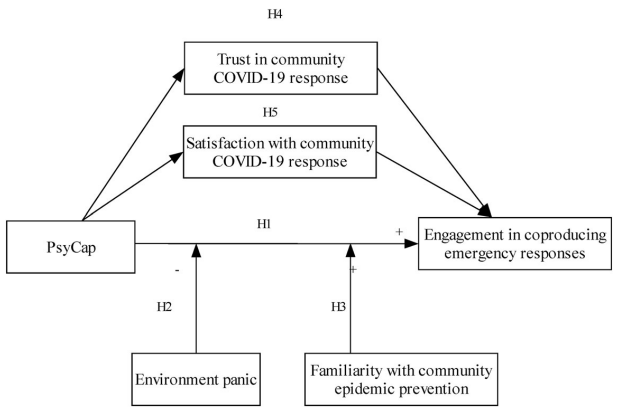
Fig.1 本文提出的研究假设
本研究使用逻辑回归,分析发现:
1.心理资本与参与社区应急联合生产呈正相关关系。

2.对社区应急的熟悉度积极调节了心理资本与参与联合生产之间的关系。
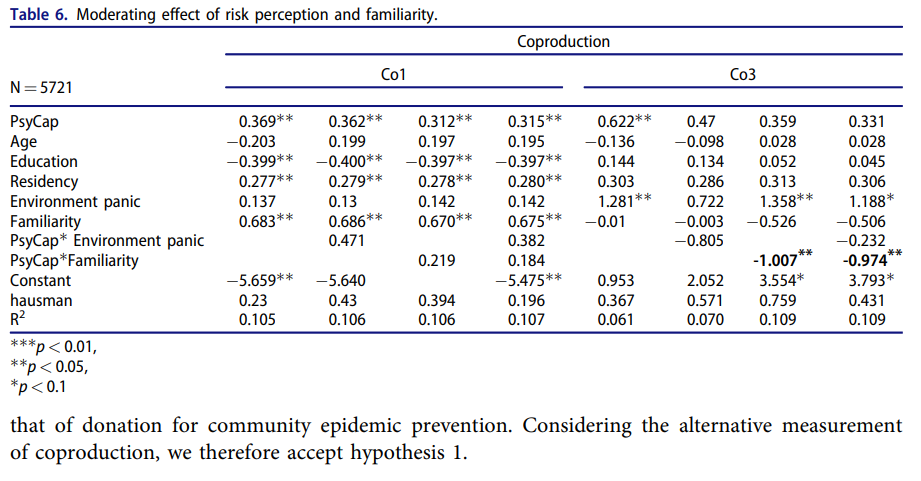
3.对社区应急响应的满意度在心理资本与参与联合生产应急响应之间的关系中起到了完全的中介作用,而对社区应急反应的信任则起到了部分中介作用。
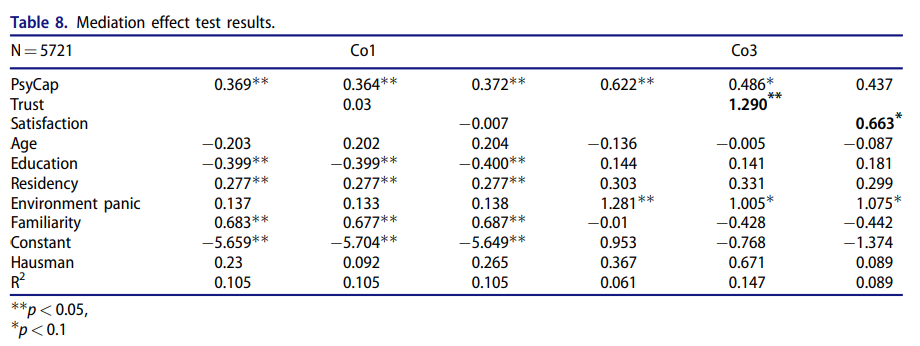
公民的满意度越高,对社区应急管理工作的满意度和信任度就越高,这进一步增加了居民参与联合生产应急响应的积极性。本研究一方面从理论上证实了心理资本对于提高应急响应联合生产的重要作用,另一方面也从实践上启示基层政府将加强公民心理资本纳入常规社区治理。
论文引用格式:
Xiao Lin Wu, Yi Yun Xie, Xiao Qin Tan & Yi Peng (2023): Association of psychological capital and engagement in coproducing emergency response: evidence from Chinese communities, International Public Management Journal,DOI: 10.1080/10967494.2023.2172118
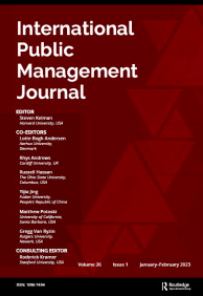
《国际公共管理杂志》(IPMJ)是公共管理研究领域有重要影响的刊物、主要出版公共组织的高质量经验和理论著作。IPMJ的特色是来自世界各地的学者,他们在公共管理和政府改革、比较公共管理、组织理论和组织行为等领域进行研究。IPMJ旨在为从事公共管理和公共行政研究的人员与从事组织行为和组织理论领域工作的人员提供一个桥梁,激发和反映国际读者和学者的学术兴趣。
文章摘要
Promoting coproduction is critical in emergency responses. This study introduces the concept of psychological capital (PsyCap) to the field of coproduction within emergency context and further empirically investigates the association of PsyCap and engagement in coproducing emergency responses. Data collected from 5721 respondents in Chinese communities of 10 provincial regions were analyzed using logistics regression. The results demonstrate that PsyCap is positively associated with engagement in coproducing emergency responses. Familiarity with community epidemic prevention positively moderates the relationship between PsyCap and engagement in coproducing emergency responses. Satisfaction with community emergency response plays a full mediation role while trust in community emergency response plays a partial mediation role in the relationship between PsyCap and engagement in coproducing emergency responses. The higher the PsyCap citizens have, the more satisfaction and trust toward the community epidemic prevention they have, which further increases residents’ engagement in coproducing emergency response to the epidemic. The findings provide empirical evidences that PsyCap is essential for involving citizens in coproducing emergency responses. It also suggests that enhancing citizens’ specific PsyCap dimensions should be incorporated into routine community governance.
